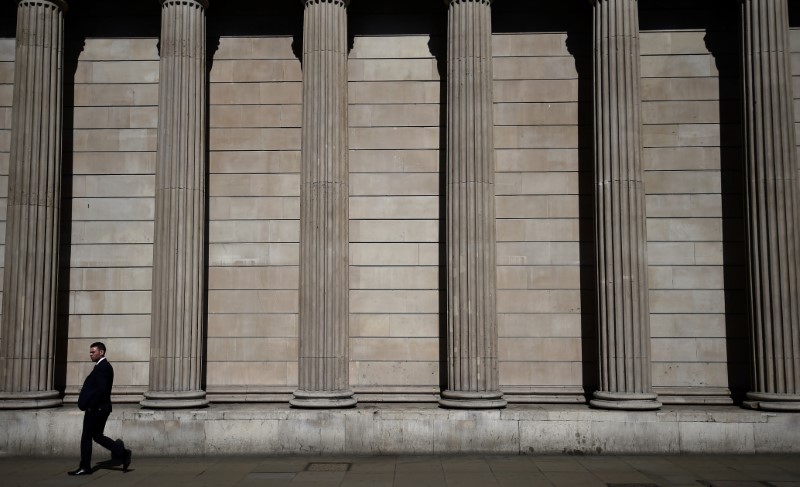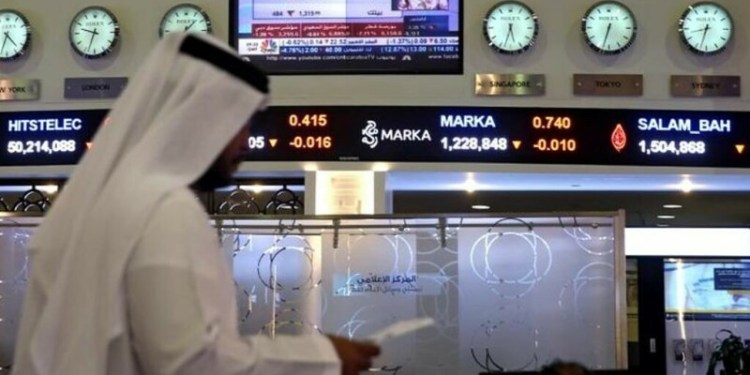 © Reuters. FILE PHOTO: A general view shows the Bank of England in the City of London
© Reuters. FILE PHOTO: A general view shows the Bank of England in the City of LondonBy David Milliken and William Schomberg
LONDON (Reuters) – The Bank of England’s new deputy governor Dave Ramsden said he was not close to voting for an interest rate hike, raising some questions for investors about when the BoE would make its widely expected first hike in more than a decade.
Deputy Governor Dave Ramsden said he was not part of the majority of BoE policymakers who believe a rate hike is likely to be needed “in the coming months” because he saw little sign of inflation pressure building in Britain’s labor market.
“Despite continued robust growth in employment there is no sign of second-round effects onto wages from higher recent inflation,” he told a committee of British lawmakers.
Silvana Tenreyro, an external member of the Monetary Policy Committee, said she might back a rate hike in the coming months if inflation pressure builds in Britain’s labor market.
“My view is that we are approaching a tipping pint at which it would be necessary or justified to remove some of that stimulus,” she said, also speaking to parliament’s Treasury Committee which was considering the recent appointments of Ramsden and Tenreyro to the Monetary Policy Committee.
“However that is very contingent on the data.”
The BoE surprised investors last month when it said most of its rate-setters expected to increase borrowing costs in the coming months, even though Britain’s economy is growing more slowly than other European economies and uncertainties about Brexit are mounting.
Ramsden said he was not part of the majority, which included BoE Governor Mark Carney.
Financial markets have betted on a first hike as soon as Nov. 2, at the end of the BoE’s next policy meeting.
Sterling fell against the U.S. dollar on Tuesday and British government bond yields also declined after the comments from Ramsden.
The BoE believes that Britain’s departure from the European Union will mean the economy will not be able to grow as quickly as before without generating excessive inflation because of lower migration and weaker investment by companies.
Britain’s inflation rate hit 3 percent in September, above the BoE’s 2 percent target, data published on Tuesday showed. But much of the increase has been caused by the fall in the value of the pound since last year’s Brexit vote which is likely to be a temporary driver of price increases.
Carney was due to speak to the Treasury Committee in parliament later on Tuesday.
Ramsden, who was formerly the top economic adviser to Britain’s finance ministry, said in a series of written answers to the lawmakers that there were signs that uncertainty about Brexit was weighing on companies and business investment could turn out to be weaker than the BoE’s central forecast.
“I see a real risk that as a result of the process of Brexit and the evolving uncertainties around it, business investment could turn out weaker than in the central forecast,” he said.
“If this were to happen, then business investment growth would not necessarily compensate for sluggish consumption growth over the forecast.”
Fusion Media or anyone involved with Fusion Media will not accept any liability for loss or damage as a result of reliance on the information including data, quotes, charts and buy/sell signals contained within this website. Please be fully informed regarding the risks and costs associated with trading the financial markets, it is one of the riskiest investment forms possible.
Source: Investing.com




























